
Sixty-eight people have been infected with this food borne illness across 19 states.
John Parkinson is the assistant managing editor for Contagion. Prior to joining MJH Life Sciences in 2020, he has covered a variety of fields and markets including diabetes, oncology, ophthalmology, IT, travel, and local news. You can email him at jparkinson@mjhlifesciences.com.

Sixty-eight people have been infected with this food borne illness across 19 states.

This comes after Japan recently announced it will donate over 3 million doses of the mpox vaccine, LC16m8 to a country in Africa.

With melting ice and the release of ancient viruses, there are concerns around the emergence of potentially unknown infectious diseases. Emily Jenkins PhD, DVM, BScHon, offers insights on “zombie viruses” and says polar bears might hold the key to understanding what lies ahead, and how a One Health approach may help in surveillance and prevention.
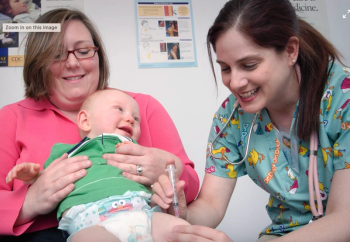
Mild reactions were experienced in 46% of recipients.
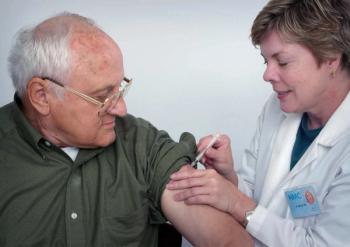
Recent data shows a 1 in 5 risk of unvaccinated house members transmitting the respiratory virus to other nonimmunized members.

It is not only about cooking the food to the correct temperature, but also how long the food should sit out, and safe storage after the meal is over. Here is more information to have a healthy holiday.

This bacteremia can present heterogeneously and be difficult to contain, especially in an older patient population. Daniel B. Chastain, PharmD, BCIDP, AAHIVP, FIDSA, reviews the data of this class of therapies and how it may be clinically beneficial in combination with other antimicrobials.

Kenneth Lawrence, PharmD, discusses the global problem and the need for a layered, multifaceted approach to antimicrobial resistance (AMR) and some of the ongoing inroads and progress being made to address the medical issue.

Robert H. Hopkins, Jr., MD, medical director, National Foundation for Infectious Diseases (NFID) and ACIP liaison, offers guidance and insights on a variety of respiratory vaccines.
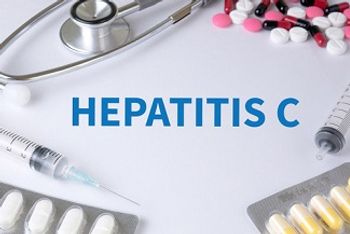
The country’s program yielded screening and treatment in almost two thirds of the identified at-risk population.

The person had recently traveled to areas experiencing clade I mpox virus transmission and sought medical care for mpox symptoms in the United States.

A new study confirms the growing belief and evidence this vector-borne diseases will increase and see a greater burden globally.

Atea Pharmaceuticals has been reporting data on its combination of bemnifosbuvir and ruzasvir as a potential treatment for the virus.

Paul Feuerstadt, MD, FACG, AGAF, discusses what the data says as well as offers insights about what patients can expect and medical peer-to-peer information about the procedure.
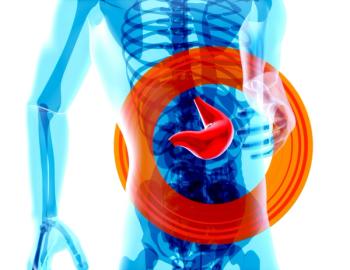
The monoclonal antibody’s manufacturer, Bluejay Therapeutics, also reports in its phase 2 clinical trial there was up to a78% combined virologic response and ALT normalization as monotherapy.

The Fall 2024 Leapfrog Group Hospital Safety Grades demonstrate an ongoing downward trend in recent years of these challenging inpatient management issues.

Alveo Technologies announced it entered into an agreement with the Centers for Disease Control and Prevention (CDC) to create a test to help in offering this capability in case there is a need for widespread diagnostics.

The country’s largest fecal distributor, OpenBiome, could be prevented from offering the product next year if the FDA does not approve the product used for fecal microbiota transplants to treat fulminant C difficile.
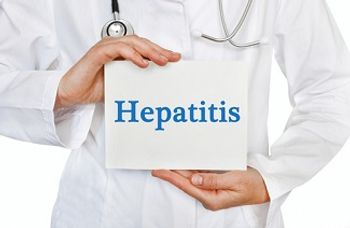
In the second part of their interview, Debika Bhattacharya, MD MSc, and Su H. Wang, MD, MPH, FACP, continue the conversation around the difficulties of getting people into care, and what the new hepatitis B guidelines hope to improve in this area.

Jose Alexander, MD, offers some insights on the antimicrobial and its activity against various gram-negative pathogens such as pseudomonas, enterobacterales.

Carol Pandak, EdD, director of PolioPlus, Rotary International, discusses the significance of this day and efforts that continue around the world to work towards eradication of this disease.

Timothy Ritter, MD, provides his insights on using the live biotherapeutic product and what both patients and clinicians can expect in terms of safety and efficacy.
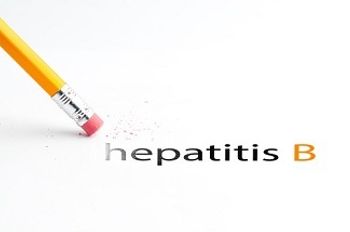
Debika Bhattacharya, MD MSc, and Su H. Wang, MD, MPH, FACP, provide important insights on the latest in hepatitis B (HBV) clinical care.

Invivyd’s Chief Scientific Officer Robert Allen, PhD, discusses the company’s pemivibart (Pemgarda) including its administration, how it can be used in concert with vaccines, and how it protects against newer variants.

The individuals are agricultural workers in Washington state who were in close proximity to and working with infected poultry at an egg farm.

With the approval of newer products, clinicians have tools to prevent the respiratory virus in the most vulnerable population. Helen Chu, MD, MPH, offers some insights on their efficacy and the nuances of the delivery of the 2 immunizations.

At ID Week 2024, in a late-breaking presentation, investigators are reporting it is safe to cut the antibiotic regimen in half without endangering patients for these infections.

Peggy Lillis Foundation CEO Christian Lillis believes patients need a seat at the table so he is advocating for past patients to become ambassadors to be a voice to help shape treatment and also continue to raise awareness about the infection.

At ID Week 2024, an investigator, Amanda M. Casto, MD, PhD, discusses her work on the CASCADIA study, which examined infection rates in this setting, and how it challenged assumptions that there is likely a singular carrier bringing viruses into homes.

A phase 3 therapy, zoliflodacin, has shown to be noninferior in a late stage trial. The therapy's manufacturer, Innoviva Speciality Therapeutics, is presenting data at this week's ID Week. The company's CMO David Altarac, MD, offers some insights on the therapy and the timeline for filing the paperwork for prospective FDA approval.